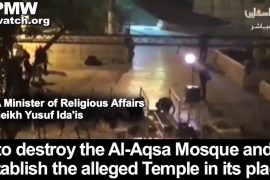1) At WINEP, David Schenker discusses UNIFIL’s failure to meet its mission.
“In its biannual reports to the Security Council, UNIFIL openly concedes its failure to interdict weapons destined for Hezbollah. While the contingent acknowledges allegations of “arms transfers to non-State actors” in Lebanon, i.e., Hezbollah, UNIFIL says it’s “not in a position to substantiate” them. Given how ubiquitous U.N. peacekeepers are in the Hezbollah heartland, this perennial failure to observe—let alone appropriate—even a single weapons delivery is a fair measure of the utter failure of UNIFIL’s mission.”
2) At the INSS, Pnina Sharvit Baruch explains ‘The International Legal Front in a Military Campaign’.
“Alongside the military campaign on the physical battlefield is a concomitant campaign in the international arena dominated by considerations of legality and legitimacy. This campaign directly impacts the political results of the military campaign. Israel often finds itself accused by international organizations, the global media, and civil society organizations of war crimes. As a result, it faces international pressure to take action to restrain the IDF, which would thereby reduce its operational freedom. This article analyzes the primary charges against IDF activity regarding the use and application of force, explains the main principles of the laws of armed conflict, and distinguishes between the legality of actions and their legitimacy in public opinion. In addition, it describes the excessive focus on Israel by UN institutions and the investigation opened by the International Criminal Court regarding Israel.”
3) The ITIC provides a backgrounder on ‘The Birth of Hezbollah’.
“The decision to establish Hezbollah was made in Tehran three years before Israel invaded Lebanon. During the first months of Khomeini’s rule in Iran, his Council of the Islamic Revolution made the decision to export the revolution to the Arab world and found Islamic movements based on Iranian Islamic ideology. To implement the program he appointed Ayatollah Ali Akhbar Montazeri, whom at the time he regarded as his eventual successor. Montazeri established an extensive organizational network to construct and support “Islamic liberation movements” in the Arab world: Hezbollah Hijaz in Saudi Arabia, Hezbollah in Bahrain, Hezbollah in Kuwait and Hezbollah in Lebanon.”
4) At the Tablet Magazine, Izabella Tabarovsky analyses ‘Mahmoud Abbas’ Dissertation’.
“On Feb. 1, 1972, the Central Committee of the Communist Party of the Soviet Union issued a directive “On further measures to fight anti-Soviet and anti-communist activities of international Zionism.” The social sciences section of the Soviet Academy of Sciences soon established a permanent commission for the coordination of scientific criticism of Zionism, to be housed at the academy’s prestigious Institute of Oriental Studies. Over the next 15 years, the IOS would serve as an important partner in the state’s fight against the imaginary global Zionist conspiracy that Soviet security services believed was sabotaging the USSR in the international arena and at home. In 1982, the IOS would grant the doctoral status to one Mahmoud Abbas, upon the defense of his thesis The Relationship Between Zionists and Nazis, 1933-1945.”





UNIFIL like most things organized and run by the UN, are less use than a chocolate teapot. Not that the despots in the UN are there for anything other than the money and to demonize Israel at every opportunity. Why else would Israel be the only permanent item on the UN security council monthly agenda or more accurately the UN bigot council. #defundthebbc